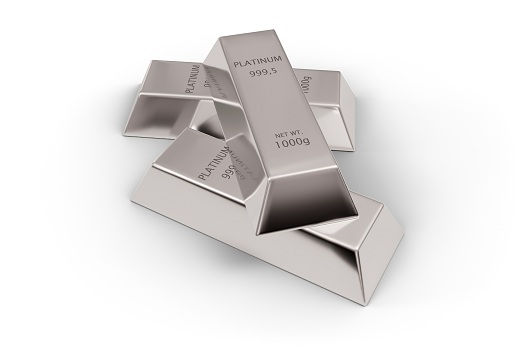Is It Difficult to Sell Platinum?
All precious metals have some inherent and discernable value. While there are buyers interested in a wide range of precious metals, certain preferences and other applicable factors also need to be kept in mind. This is more likely to be something to consider if you’re looking to sell a precious metal that’s not gold or silver, which brings us to platinum. Today, the precious metals experts from First National Bullion and Coin, San Diego collectors’ top choice when they’re looking for dealers with extensive industry knowledge who provide high-quality service, offer a look at how hard platinum is to sell and what to consider as you explore your options.
Not All Buyers Make Platinum a Priority
Ideally, you should be offered a fair market value for your platinum based on its purity and the current spot price for platinum. However, not all buyers give every precious metal the same priority. What this means is you could get an offer that’s not on par with what you could get if you had a comparable quantity of silver or gold.
Platinum Tends to Have a Poor Resale Value
According to The Economic Times, platinum, in general, has a poor resale value. The main reason is because a relatively small number of people are willing to buy it. This doesn’t mean you can’t find a reputable buyer, but you’ll need to do some searching as you explore your options.
Purity Can Be an Issue
It’s typically easier to sell platinum in bar or coin form than it is to sell platinum jewelry. The reason is because bars and coins usually have marks that clearly indicate purity. It’s also more common to have documentation attesting to quality with bars and coins. However, platinum jewelry often has other metals thrown into the mix. This could present some issues for people looking to sell platinum jewelry. Buyers typically look for marks or stamps on platinum pieces that indicate purity, such as:
• PT 900 – This mark or stamp indicates a platinum purity of 90 percent
• PT 950 – Platinum products with this mark are more likely to be more in demand, since the purity is 95 percent
The purity levels mentioned above are considered average for platinum pieces. Platinum coins, though, are often 99.95 percent pure. Platinum bars often consist of 99 percent fine platinum. This is why platinum coins and bars are usually easier to sell.
Do Your Homework & Become a More Informed Seller
Increase your odds of successfully selling your platinum and getting a fair price by working with a reputable precious metals firm. It can also be helpful if you become a more informed seller so you’ll know what to consider when a buyer makes an offer. Pay particular attention to:
• The quality and purity of any platinum pieces you wish to sell
• The current spot/market value for platinum
• The overall demand for platinum at the moment*
*In 2021, according to Reuters, the platinum market was oversupplied, which resulted in a dip in demand of nearly 10 percent.
If you live in San Diego, gold and bullion as well as platinum coins, silver bars, and other precious metals of the highest quality are available at First National Bullion and Coin. We buy and sell all kinds of precious metals, including platinum, silver, gold, and palladium. San Diego collectors who are looking for trustworthy dealers and exceptional service should give us a call at (858) 304-7580 to speak with one of our precious metals experts.
The statements made in this blog are opinions, and past performance is not indicative of future returns. Precious metals, like all investments, carry risk. Precious metals and coins may appreciate, depreciate, or stay the same in cash value depending on a variety of factors. First National Bullion does not guarantee, and its website and employees make no representation, that any metals for sale will appreciate sufficiently to earn the customers a profit. The decision to buy, sell, or borrow precious metals and which precious metals to purchase, borrow, or sell are made at the customer’s sole discretion.


